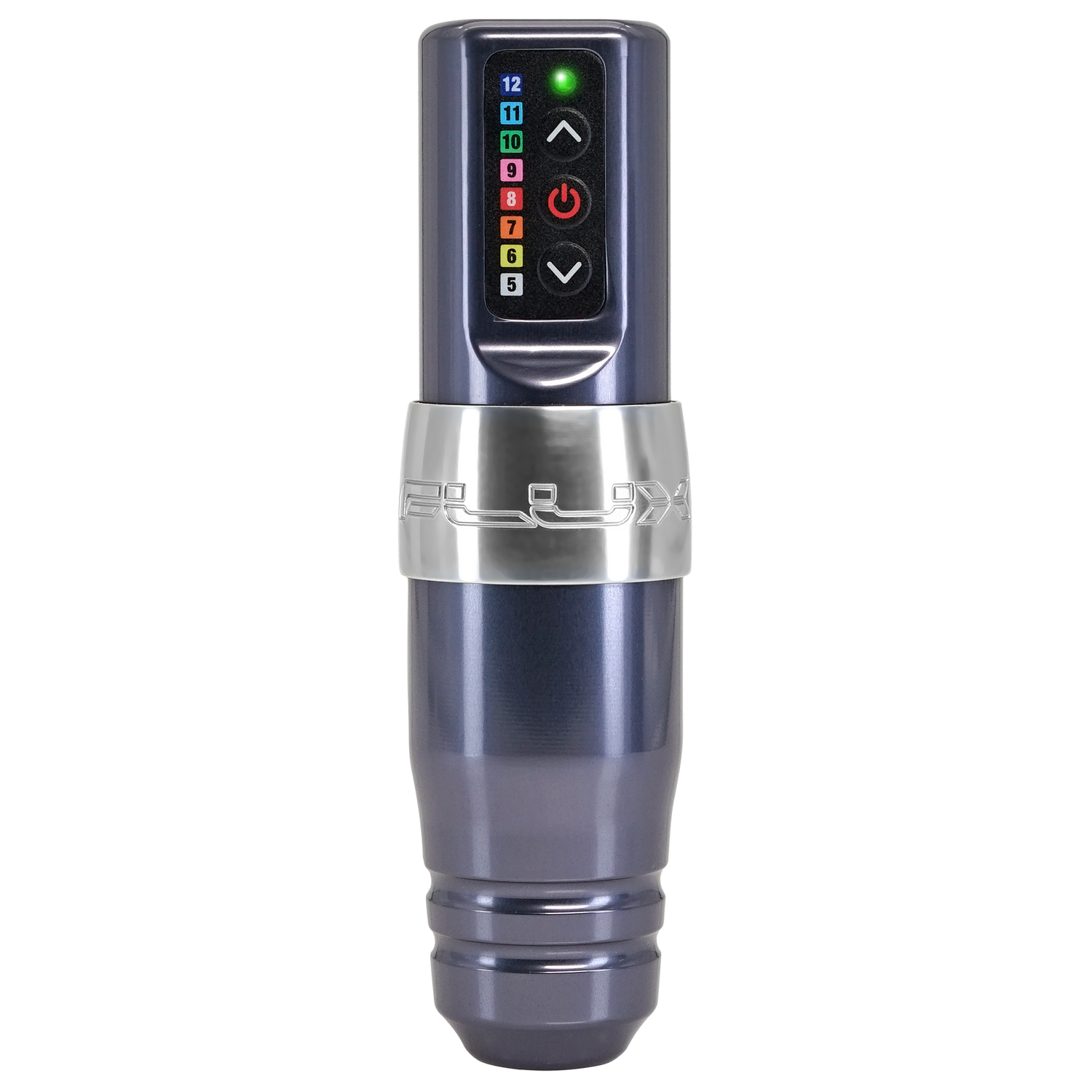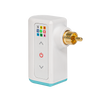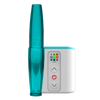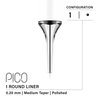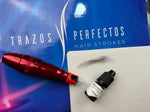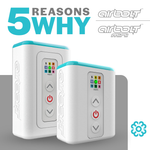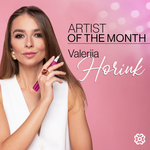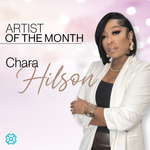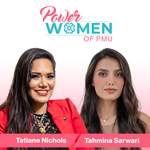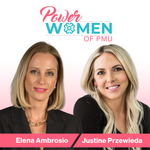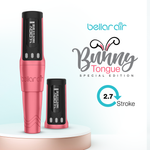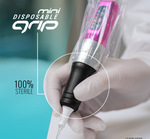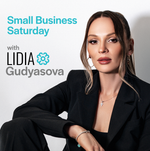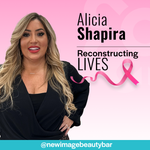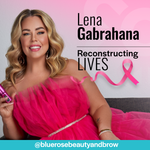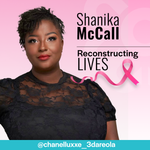
Black History month is a time for reflection and recognition towards those individuals who have changed and revolutionized their community. Microbeau deeply understands the need to support the Black community within the PMU industry, and because of this, we would like to continue sharing the stories of artist within this community who are impacting lives daily.
Read along to learn more about these inspiring artists.

Zuri Dale @artistrybyzuriOpens a new window
Tell us about your history. How you started off in the PMU industry.
I took my very first training class in 2018. As a scientist by trade, I was drawn to the industry due to the intricacies of the service. To be honest, I was much more intrigued by how the brow would heal after the service was complete, than I was in completing the actual service. I was enthralled by there being a service which implanted pigment under the skin that mimicked makeup when healed.
I got into the industry prepared to explore the intricacies of the skin, but I learned very quickly that most training classes did not focus on skin science. I stayed in the industry to investigate the cellular complexity of working with melanin skin, and I was disheartened by the unfavorable work that was far too often seen on women of color. As an artist and a scientist, I felt obligated to trail blaze in this area and merge the two.
Art and science are a natural partnership. Both artists and scientists live with a similar inquisition. Scientists do this through repeated experiments and communication of findings. Artists, like us in the industry, start with a vision and explore the best way to communicate their findings through our healed work. When you consider it this way, the bridge of the two is natural and I remain committed to this message of the art and science of PMU.
How do you feel that you can relate to Black History month?
Celebrating Black women is integral because our experiences in the industry will be vastly different from our counterparts. We experience many more racial micro-aggressions, a lack of representation in the field, self-doubt, and the mental health concerns associated with these factors. Despite this, we continue to be at the forefront of advancements in this industry and we must use every opportunity to amplify and celebrate our talent.
What has been your experience as a Black artist in the PMU industry?
I am undoubtedly certain that I have had to work astronomically harder to gain the same recognition than my non-Black counterparts have gotten. Part of why I continue my career as an Epidemiologist is to remain credible in the PMU industry. I feel as though the industry is shifting in a sense, but at times I feel exhausted with having to maintain such a high standard just to be seen as equal.
What is your advice to other Black PMU artists?
My advice to other Black artists it that we can do and be it all. As African Americans the reality is that we are born in the lower rung of the economic ladder and quite honestly, we are not always afforded the same opportunity in terms of being able to pursue entrepreneurship with no other obligations. Many of us must work full-time jobs and pursue PMU full-time just to compete.
While this is the reality, it can also be seen as positive. The challenge though is for us not to feel we have chosen one thing over the other, because we do not have to. We can pursue PMU and pursue careers we are passionate about outside of PMU. We may have to wake up earlier in the morning or go to sleep later at night, but that's okay. We can get fulfillment and joy from multiple things, and we can do them all with the same standard of excellence if we pursue them with intensity and integrity. We are renaissance women!
If you could change anything about the PMU industry, what would it be?
One of the biggest changes I would implement is increasing representation in areas that we are directly impacted by. It continues to be disappointing to see us not placed at the top of the industry as it applies to working with hyperpigmented clients. We are experts at simply existing as not only Black artists, but Black people, yet we continue to be told how to treat and service our own skin type without being given a seat at the table. We want to be engaged in some of the decisions made for us because we are the ones impacted by these decisions. In example, pigment lines have been developed for us, yet without including us. There is a similar lack of representation at major conferences and that must change.
Have you used any of our Microbeau devices? If so, what procedures do you like to perform with it, and why?
Yes, my favorite is the Xion SOpens a new window and my go-to needle is the Vertix Nano.Opens a new window My specialty is the eyebrow and I appreciate the low vibration of this machine!

Jenny Lind @mystiquebrowsbyjennylindOpens a new window
WatchOpens a new window Our IG Live with Jenny
Tell us about your history. How you started off in the PMU industry.
I started in 2015. After being a cosmetologist for almost 20 years I made the decision that it was time for me to move on. I wanted to stay in the beauty industry, and I learned about permanent makeup. It was one of the best decisions I ever made in my life.
How do you feel that you can relate to Black History month?
Being one of the first women of color in the states to offer permanent makeup not only as an artist but as an educator was a big deal in 2015. It is amazing to see the growth in all the opportunities that women of color have made so far.
What has been your experience as an African American artist in the PMU industry?
In the beginning my experience as a woman of color artist was not easy. As with many industries we had to strive and prove that we belong. I am so happy to see that today there is so many talented African American artists in industry.
What is your advice to other Women of Color / African American PMU artists?
My advice would be to never give up. It is your duty to create a legacy for you and your family, no matter how hard it may seem. Be diligent in your craft, be sure to properly educate yourself not only with technique, but also running your business.
If you could change anything about the PMU industry, what would it be?
If I could change anything in the industry, it would be the way that education is approached. I feel that there is a need for a more concentrated curriculum on technique.
Have you used any of our Microbeau devices? If so, what procedures do you like to perform with it, and why?
I currently use the Bellar V2Opens a new window and Xion MiniOpens a new window for powder ombré and nano brows.

Monica McLaurin @thebrowdetectiveOpens a new window
Tell us about your history. How you started off in the PMU industry.
I started my PMU Journey in 2017 when I took my first training course. At the time I didn’t feel confident enough to start my career after the course, so I continued my education for 3 more years. I became 12x’s certified in 2021 and took the leap of faith to start taking clients. In June of 2022, on my 40th birthday, I officially became a full-time PMU artist after leaving my job of 14 years as a Detective for the New Orleans Police Department. I was in law enforcement for 22 years and now I’m a full-time business owner as The Brow Detective.
How do you feel that you can relate to Black History month?
Being that I am a proud African American female, celebrating Black History month is always an honor. African Americans have made some iconic strides and impacts throughout history from inventions to rights of passages. And, to add myself to the equation, of becoming a successful Black female entrepreneur who would pave the way for future African American artists to know that it is possible to live your dream.
What has been your experience as a Black artist in the PMU industry?
In all honesty, my personal experience has been awesome. I’ve been able to connect with multiple artists of different ethnicities in a community over the competition aspect. But also, as a Black artist, it does feel as though I have to work a little harder to get the reach in the industry, unlike many artists of other ethnicities. Many platforms and major brands in the PMU Industry have a lack of African American artist but we there is a lot of talent within the industry, like me.
What is your advice to other Black PMU artists?
My advice would be to be true to who you are and be proud of it because when you think no one is watching your hard work, a great opportunity may present itself. It doesn’t always mean you have to have thousands of followers or be the most popular to be recognized for your talent and work ethics. This is why I truly appreciate the opportunity to collaborate with Microbeau on this campaign.
If you could change anything about the PMU industry, what would it be?
I would love for the industry to be less segregated and for everyone to be viewed as equal no matter the ethnicity. And I would love to see more Black artists on pro teams, on stages at conferences, and looked at as valuable in the PMU industry.
Have you used any of our Microbeau devices? If so, what procedures do you like to perform with it, and why?
I recently used the Bellar AirOpens a new window and fell in love. I love the powdery soft finish that it gives for brow services. It’s very lightweight and quiet which is a plus. I’ve also used the Xion S for lip neutralization which was a very good machine for packing in color.
